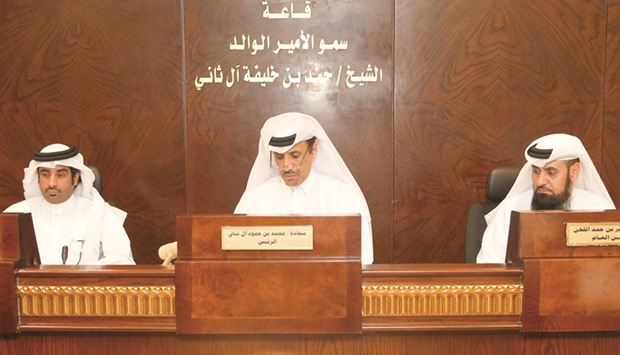The establishment of various government and private storehouses within residential areas of Doha has to be checked, the Central Municipal Council (CMC) has recommended.
CMC chairman Mohamed Hamoud al-Shafi raised the issue at yesterday’s bi-weekly regular session, recalling that it had been tackled many years ago by the previous councils.
“Yet, things remained unchanged with even more unauthorised storehouses being established among residential buildings, causing adverse security, safety and environmental impacts,” he explained.
CMC member Sheikha al-Jufairi said it has been more than eight years since the issue was first raised by the CMC. She pointed out that in areas such as Al-Hilal, Al-Thumama and others, there are various government storehouses for the Kahramaa and the Ministry of Municipality and Environment (MME) for example.
CMC member Jassim al-Malki said that such storehouses should be located and a recommendation addressed to the MME to take the necessary measures. He was of the view that a shortage of storage facilities and land have caused such phenomenon to escalate and persist. Besides, when plots are assigned for the purpose they often lack the necessary service infrastructure.
Accordingly, he suggested that the government should launch major projects and assign them to real estate developers in the country. The government should conduct the leasing process and control the rent, failing which the rates would go unreasonably high and adversely affect the consumers.
Al-Shafi pointed out that the government has launched major storehouses projects at different areas including Al Wakrah, the Industrial Area and Brekat al-Awmrah, among other areas. He stated that the unauthorised and unlicensed storehouses within residential areas, constitute a major part of the problem.
CMC vice-chairman Hamad Lahdan al-Mohannadi said that before providing valid and sufficient alternatives, getting such storehouses out of residential areas would only shift them to other areas and the problem would not be resolved.
Eventually, CMC members pointed out that the phenomenon has many adverse consequences, so they agreed to form a special committee to further study the issue in co-operation with the entities concerned to devise adequate recommendations.
The council also addressed the issue of enforcing effective segregation between women and men at Primary Health Care Centres to maintain the local traditions and give women more convenience and privacy.
The council agreed that while some health centres maintain this, others still lack the infrastructure to strictly follow such policy. They will sent a letter with the names of the centres that do not follow effective segregation to the MME with a request to resort to necessary procedures.
Further, the council issued a recommendation to study the possibility of launching a taxi service with female drivers and only for women and families.
The CMC also reviewed the response of the MME on its previous recommendations on the rain drainage networks at highways and regarding inspection on massage centres and approved them.
The session was concluded by a review of the outcome of the CMC members visit to the worksite of Lusail expressway project. The council recommended that work should be expedited to make up for the delay in the project and the completed parts should be opened to traffic if possible.

CMC chairman Mohamed Hamoud al-Shafi (centre) and vice-chairman Hamad Lahdan al-Mohannadi (left) at the session.
